You’ve seen the stats. You’ve heard the success stories. And now, you’re convinced AI role-play is the missing link in your sales training strategy. But where do you start?
Rolling out AI-powered role-play doesn’t require a massive overhaul—but it does require a plan. Whether you’re a sales enablement leader, VP of Sales, or part of a small but mighty revops team, this checklist will help you implement AI role-play the right way—from pilot to performance gains.
Step 1: Align on the Problem You’re Solving
Before selecting tools or scenarios, get clear on your objective.
- Are new reps ramping too slowly?
- Are you struggling with consistency across regions or teams?
- Are your managers stretched too thin to run effective role-plays?
This alignment helps you focus your rollout and define success metrics from day one.
Step 2: Select a Role-Play Platform That Fits Your Needs
Look for platforms purpose-built for sales, not generic learning tools. Key features to prioritize:
- Realistic AI-powered role-play simulations (not just chatbots)
- Automated scoring and feedback
- Customizable scenarios for different personas, products, and stages
- Integration with your existing LMS or CRM (nice-to-have)
- Dashboards that show rep progress and coaching needs
Copient.ai was designed specifically for this kind of rollout, and that focus matters when you need fast time-to-impact.
Step 3: Start with a Targeted Pilot
You don’t need to launch across your whole org right away. Start small and smart.
- Choose one segment: new hires, BDRs, or a struggling team.
- Pick 2–3 high-impact scenarios to train on (e.g., objection handling, discovery, competitive differentiation).
- Establish a cadence: Weekly drills or milestone-based certifications.
- Track results: Use completion data, scoring, and manager feedback to validate the impact.
A focused pilot builds internal champions and helps you gather quick wins before scaling.
Step 4: Communicate the Why (and the Win)
Don’t just tell reps, “We’re adding a new tool.” Show them what’s in it for them:
- More practice means more confidence on live calls.
- Feedback is private, specific, and growth-oriented.
- Top reps will have a chance to rise faster and help others level up.
Position it as a career accelerator, not just a checkbox.
Step 5: Scale with Structure
Once you’ve validated impact, you’re ready to scale.
- Add more role-play scenarios aligned to your sales motion.
- Tie AI drills into onboarding, manager 1:1s, and sales certifications.
- Use dashboards to spot skill gaps and coach proactively.
- Recognize and reward rep growth and engagement.
The more your reps use it, the more valuable the insights become, and the more your training flywheel spins.
Final Thought
AI role-play isn’t just a tool—it’s a shift in how modern sales teams train, coach, and perform. With a smart rollout and a clear plan, you’ll create a system that delivers consistent practice, scalable coaching, and measurable performance improvements.
You don’t need to wait for headcount or budget cycles. You just need a checklist and the courage to get started.

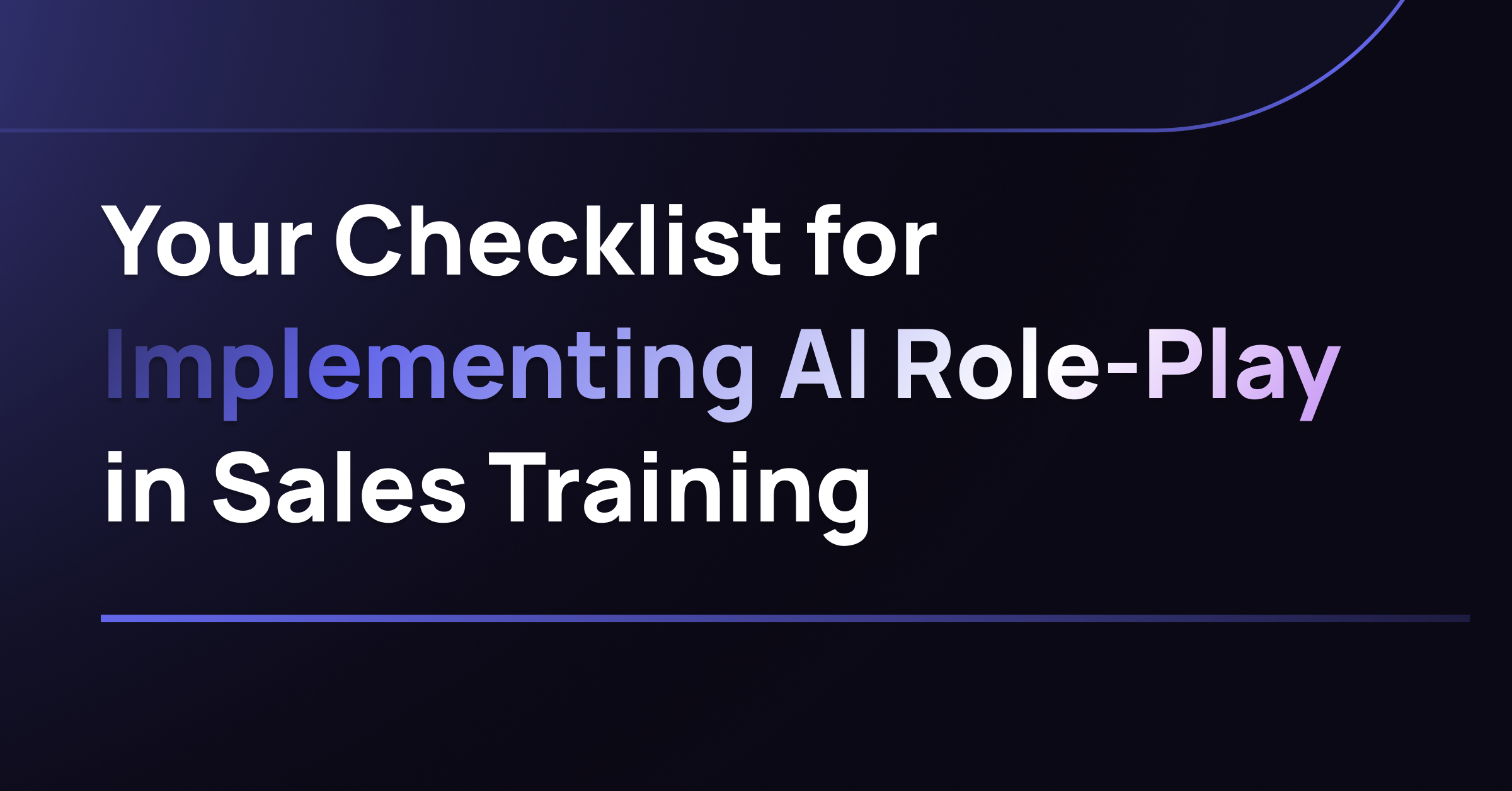




.png)
.png)
.png)
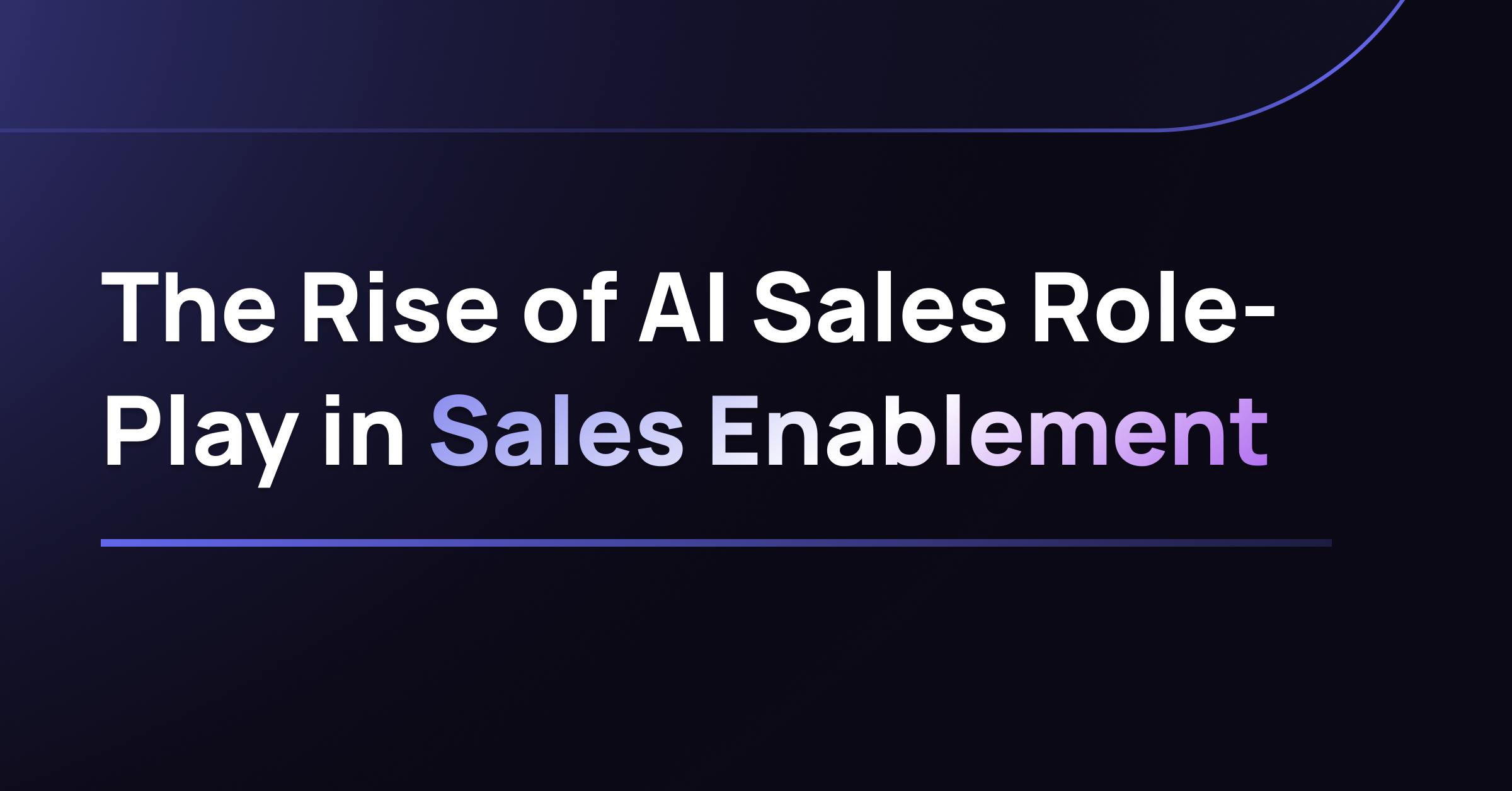
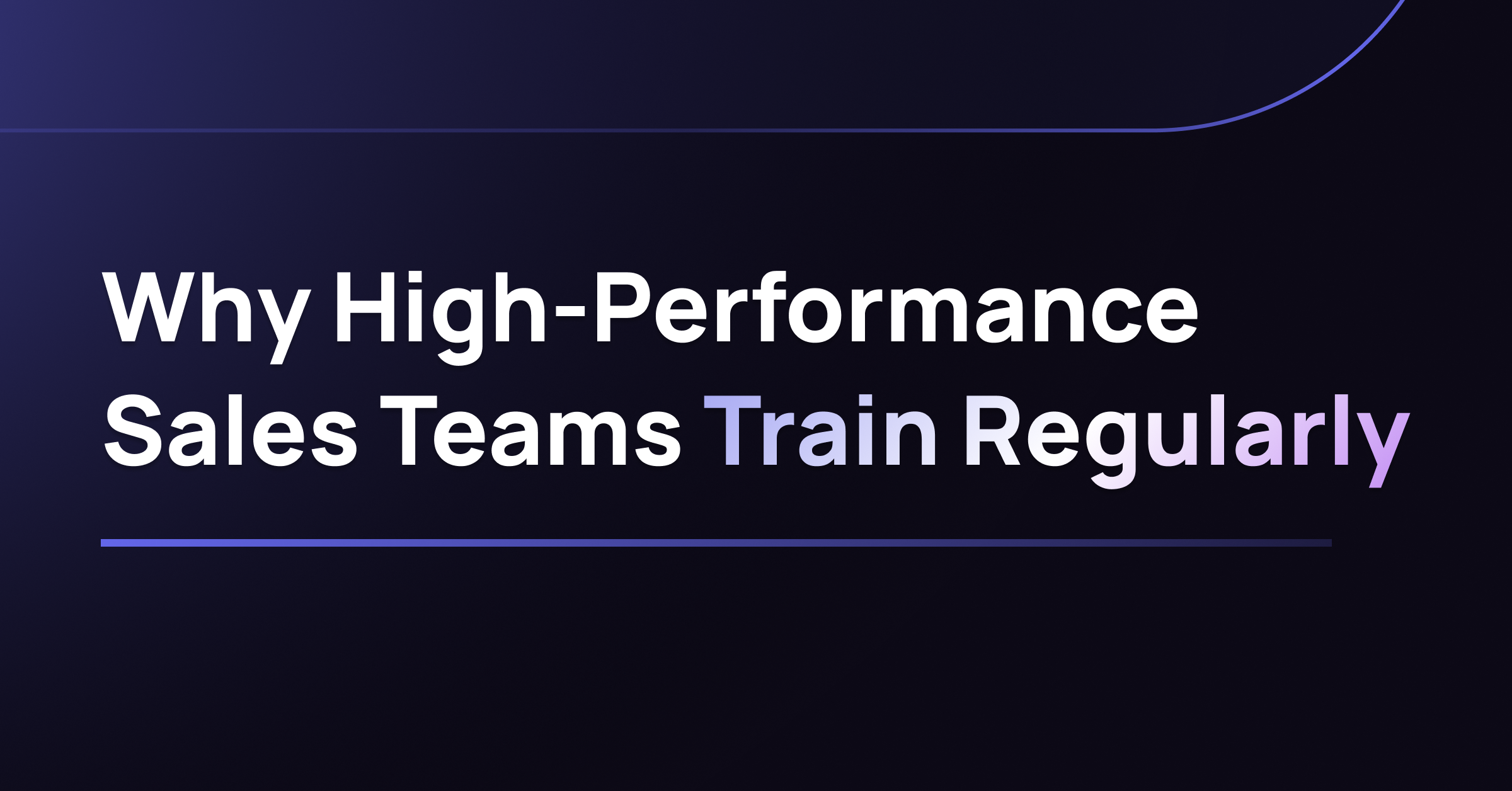
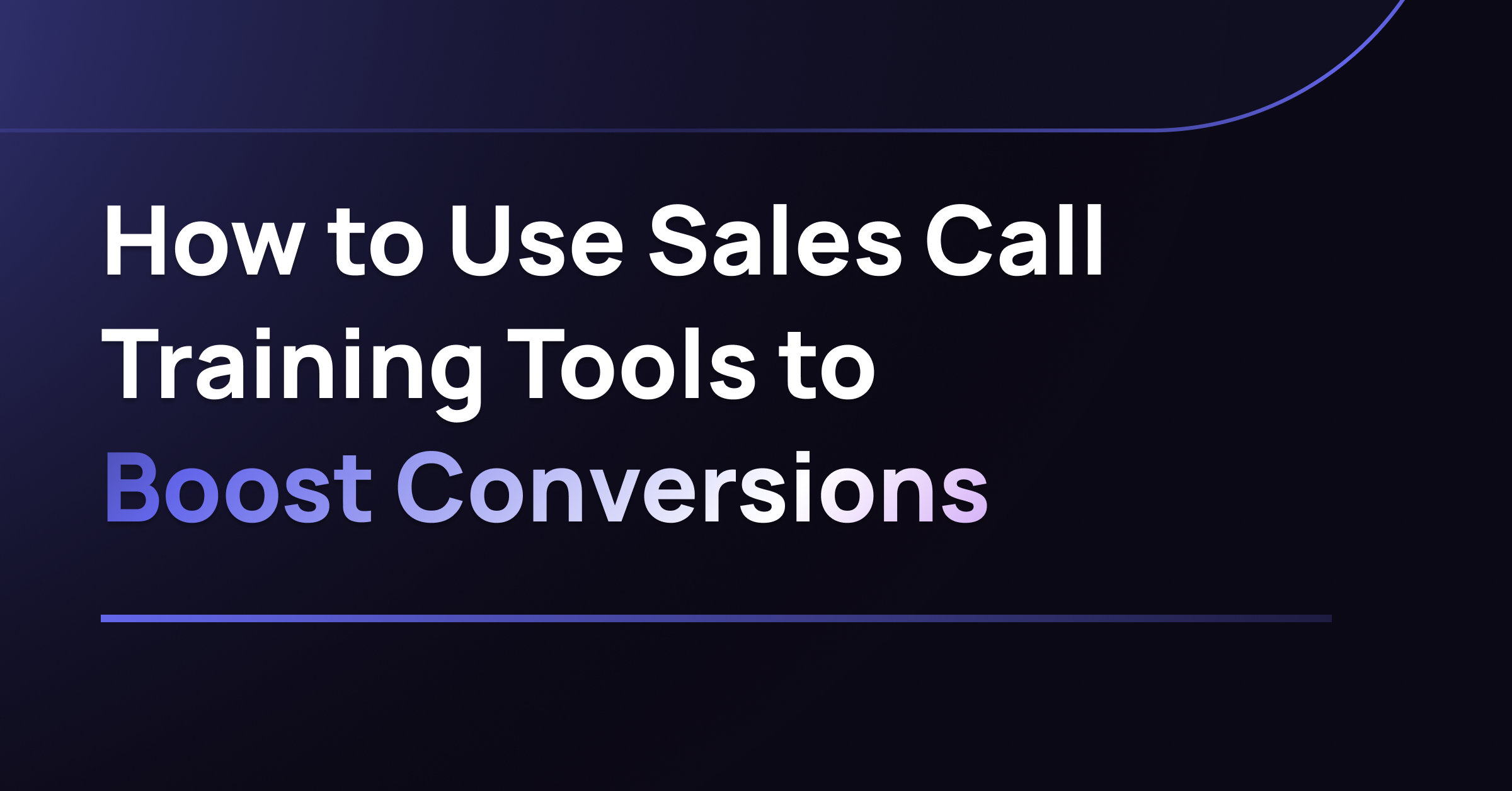
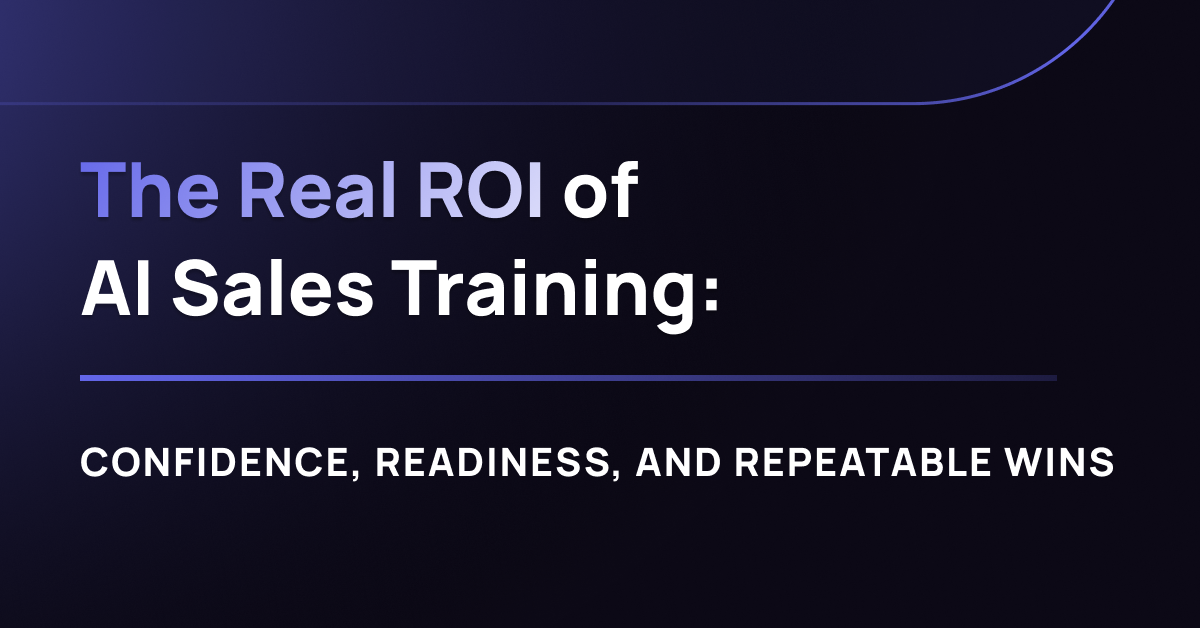
.png)






.png)



.avif)